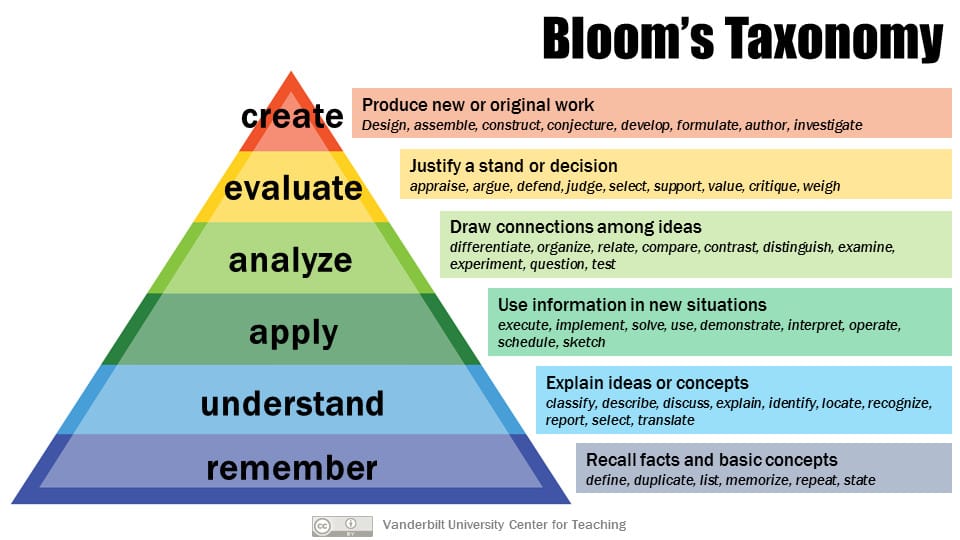Beyond Multiple Choice: Bloom's Taxonomy

Bloom's Taxonomy is a framework used by educators to classify learning objectives and promote higher forms of thinking, from basic recall to advanced analysis and creation. When it comes to assessing these skills, writing assignments often outperform multiple-choice questions. Here’s why writing tasks are more effective.
Broader Cognitive Assessment
Writing tasks evaluate a wider range of cognitive skills. While multiple-choice questions are good for testing basic recall and understanding, they often miss higher-order thinking skills like analysis, evaluation, and creation. Writing assignments, however, require students to articulate their thoughts, connect ideas, and build well-reasoned arguments, fully engaging with the top tiers of Bloom’s Taxonomy.

Encouraging Deeper Learning
Writing promotes deeper learning. Students need to thoroughly process information to explain it in their own words, apply concepts to new situations, and synthesize information from various sources. This process enhances understanding and helps students retain knowledge longer, compared to simply choosing an answer from a list.
Insightful Feedback
Writing assignments offer more insight into students' thinking processes. Teachers can observe how students tackle problems, organize their thoughts, and use critical thinking skills. This detailed feedback is crucial for identifying areas where students need more support, unlike the limited insight multiple-choice answers provide.
Groovelit's Approach to Quick Writes
Moving beyond multiple choice and worksheets takes bravery and planning. Here at Groovelit, we're here to help. Groovelit's Writing Games gamify the quick writing process, and take the lift off of teachers in getting formative data from a rich set of student thinking. This student thinking can showcase higher order thinking that analyzes, evaluates, and creates.